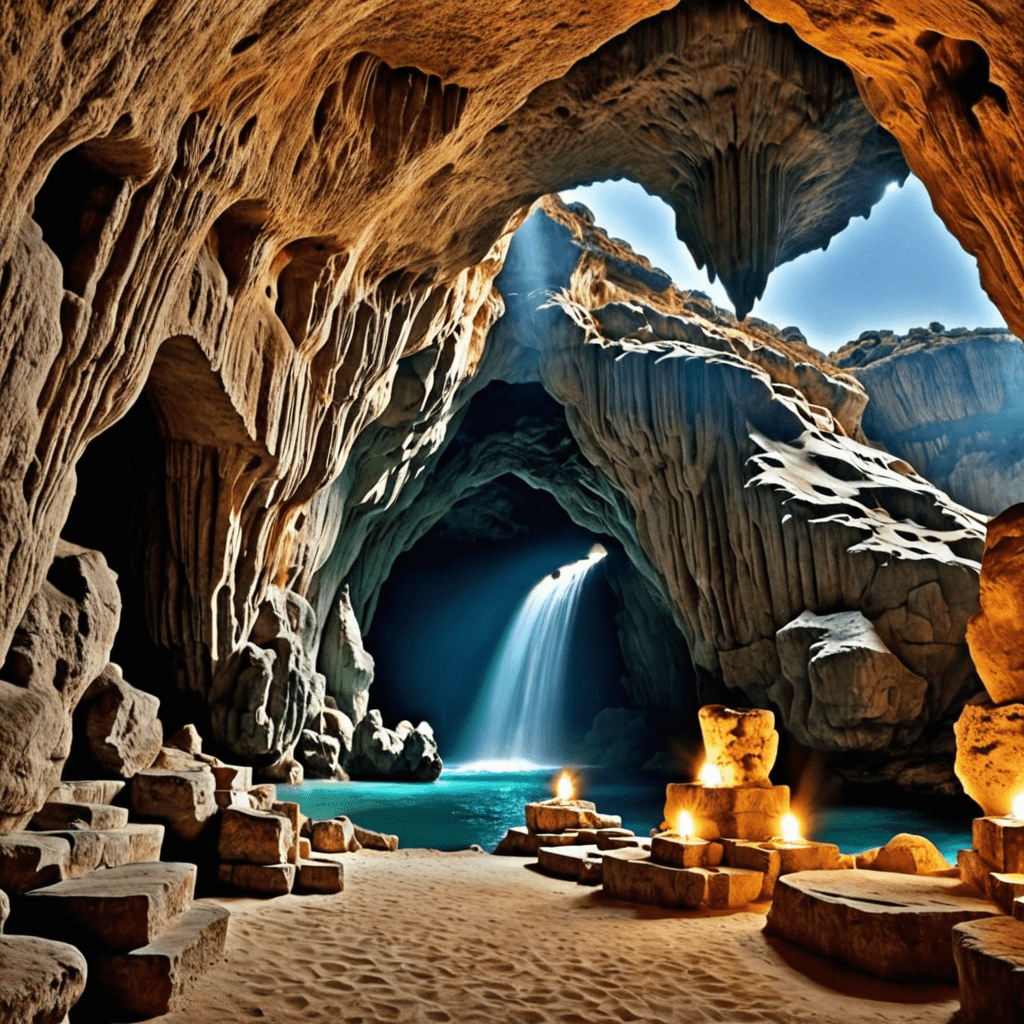The Symbolism of Caves in Greek Mythology
Greek mythology is rich with symbolism, where even the seemingly mundane, like caves, hold deep meanings. Let’s delve into the significance of caves in Greek myths to uncover the hidden stories and lessons they impart.
1. Origin of Caves in Greek Mythology
Caves in Greek mythology often served as portals to other realms or domains. The Greeks believed that caves were entrances to the mysterious underworld, the domain of Hades, the god of the dead. The mythological significance of caves as passageways between our world and the divine underworld added an aura of mystique and importance to these natural formations.
2. Caves as Birthplaces and Sanctuaries
In Greek mythology, caves were not just ominous gateways but were also revered as places of significant births and sanctuaries for gods and heroes. For instance, Zeus, the king of the gods, was said to have been raised in a cave on the isle of Crete. Moreover, caves like the Corycian Cave in Delphi were considered sacred to the god Apollo, serving as places of prophecy and divine communication.
3. Symbolism of Darkness and Transformation
The darkness inherent in caves symbolized the unknown and mysterious aspects of life, often associated with transformation and rebirth. The descent into a cave in Greek myths was more than just a physical journey; it represented an introspective voyage through darkness, leading to personal growth and enlightenment.
4. Reflection of the Human Psyche
Caves in Greek mythology can be seen as metaphors for the human psyche. Just as caves can be daunting and labyrinthine, the depths of our minds hold hidden fears, desires, and potentials waiting to be explored and understood. The symbolism of caves serves as a reminder to confront our inner demons and embark on a journey of self-discovery.
FAQ about The Symbolism of Caves in Greek Mythology
What is the significance of caves in Greek mythology?
Caves in Greek mythology often symbolize the entrance to the underworld or the abode of various deities. They represent the threshold between the earthly realm and the divine realm, serving as portals for transformation and spiritual journeys.
Which Greek myths prominently feature caves?
Greek myths like the abduction of Persephone by Hades, the birth of Zeus in a cave on Mount Ida, and the sanctuary of the Oracle at Delphi located inside a cave, showcase the importance of caves as settings for significant events in Greek mythology.
How do caves symbolize rebirth and regeneration in Greek mythology?
Caves are associated with rebirth and regeneration in Greek mythology due to their connection to the cycle of life, death, and renewal. They represent a place where individuals undergo trials or transformations, emerging anew or enlightened, symbolizing the journey of the soul and personal growth.




